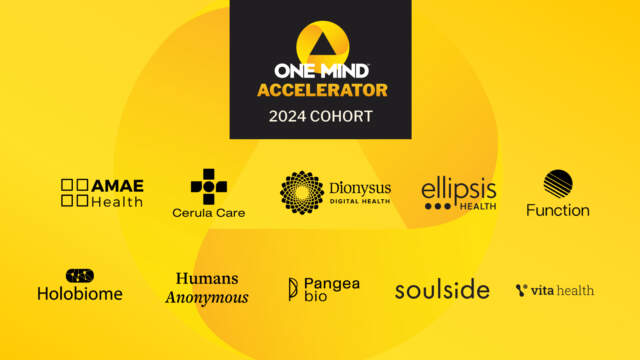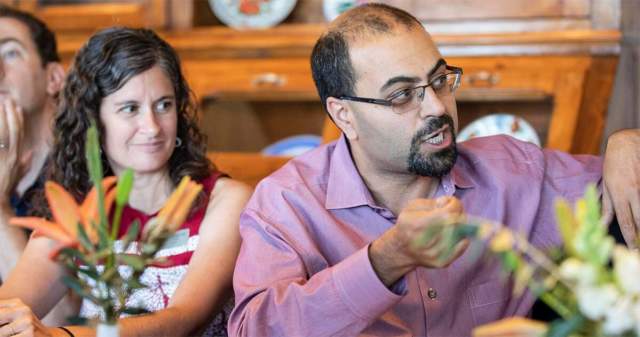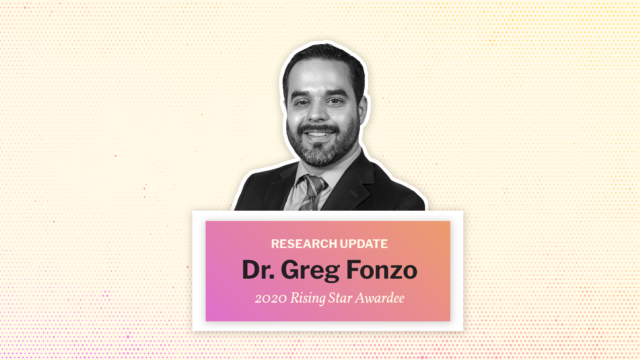Gregory A. Fonzo, PhD
Focused ultrasound neuromodulation for the mechanistic treatment of affective disorders
2020 One Mind-Baszucki Brain Research Fund Rising Star Award
Greg Fonzo, PhD, Assistant Professor of Psychiatry and Behavioral Sciences at the University of Texas, Austin, Dell Medical School was awarded the 2020 One Mind-Baszucki Brain Research Fund Rising Star Award to support his research on an ultrasound-based neuromodulation technology that aims to improve treatments for those with affective disorders such as depression, anxiety, posttraumatic stress, and bipolar disorder. Through the Rising Star Awards program, Dr. Fonzo will receive a total of $300,000 in research funding from One Mind distributed in equal installments from 2021-2023.
Neuromodulation is the practice of altering the activity of specific target areas of the brain with the goal of repairing or improving neural functions that have gone awry in neuropsychiatric diseases. Dr. Fonzo’s research focuses on applying ultrasound neuromodulation technology to the amygdala, an area of the brain thought to regulate emotional responses, in the brains of individuals with and without affective disorders. He does this while the individuals undergo functional magnetic resonance imaging (fMRI), a type of neuroimaging, to see how the ultrasound changes the activity of the brain in real time.
In 2021, Dr. Fonzo and his team made substantial progress on the setup of his study’s procedures, refined the experimental protocol, and enhanced the knowledge base of the effects of focused ultrasound on the modulation of amygdala activity.
To achieve this, Dr. Fonzo and his team undertook a series of pilot studies to determine the ultrasound parameter settings that best reduces amygdala blood oxygenation-level dependent (BOLD) signals, a proxy for amygdala activity, as measured by fMRI in the human brain— both at rest and during the completion of behavioral tasks that involve the perception of emotional facial expressions. They find that using a lower frequency repeated ultrasound pulses (10 Hz vs 100 Hz) is more effective at reducing the activity of the left amygdala while the subject is at rest. They also find that while at rest, the lower frequency ultrasound effectively reduces functional connectivity between the amygdala and the prefrontal cortex, an area of the brain involved in decision making and cognitive function.
These findings are a significant step in refining the experimental parameters necessary to accurately and effectively modulate amygdala activity for their studies and future therapeutic use. This is evidenced by additional studies conducted by Dr. Fonzo and his group where they found that 10 Hz stimulation also caused a dampened amygdala response to negative emotional stimuli such as fearful and angry faces.
A crucial component of brain health disorder research is the identification of abnormal brain circuit function through comparison of those living with the condition to individuals without. To do this, Dr. Fonzo and his team have recruited participants with and without affective disorders to undergo the same study protocol. In addition to the development of appropriate therapy protocols, Dr. Fonzo and his team made technological progress into integrating the ultrasound system with neuronavigation software and hardware, allowing for reliable targeting of the left amygdala without the need for MRI-guided targeting after initial placement. This advancement will allow a streamlined application of ultrasound which reduces the burden of daily application during the study.
During his final two years of One Mind-funded support, Dr. Fonzo will focus on increasing study participation, examining the potential therapeutic effects of ultrasound through a daily administration model in individuals with an affective disorder, and refining his study protocol to include electroencephalographic (EEG) recording. This component of the study will allow for the longitudinal measurement of brain activity over the course of chronic treatment in individuals with affective disorders.
Dr. Fonzo’s research was featured in One Mind’s documentary short film Inside Breakthrough Research, Stimulating the Brain for Mental Health, which was released in April 2021.
One Mind is proud to help accelerate Dr. Fonzo’s research and we are hopeful that the knowledge gained from his efforts will result in a viable, non-invasive therapy that could ultimately change the lives of the millions of people living with affective disorders.






